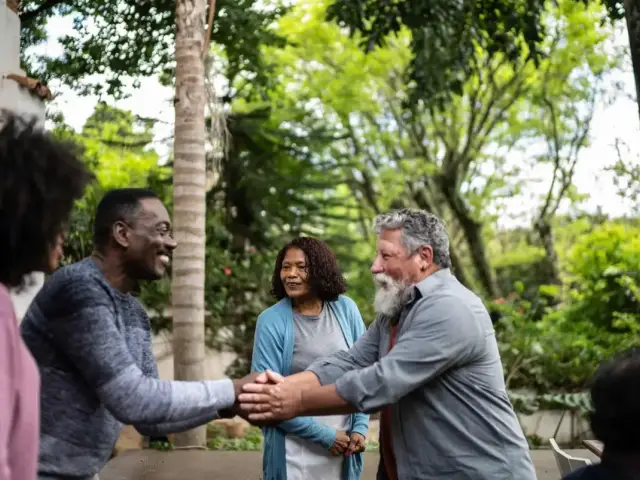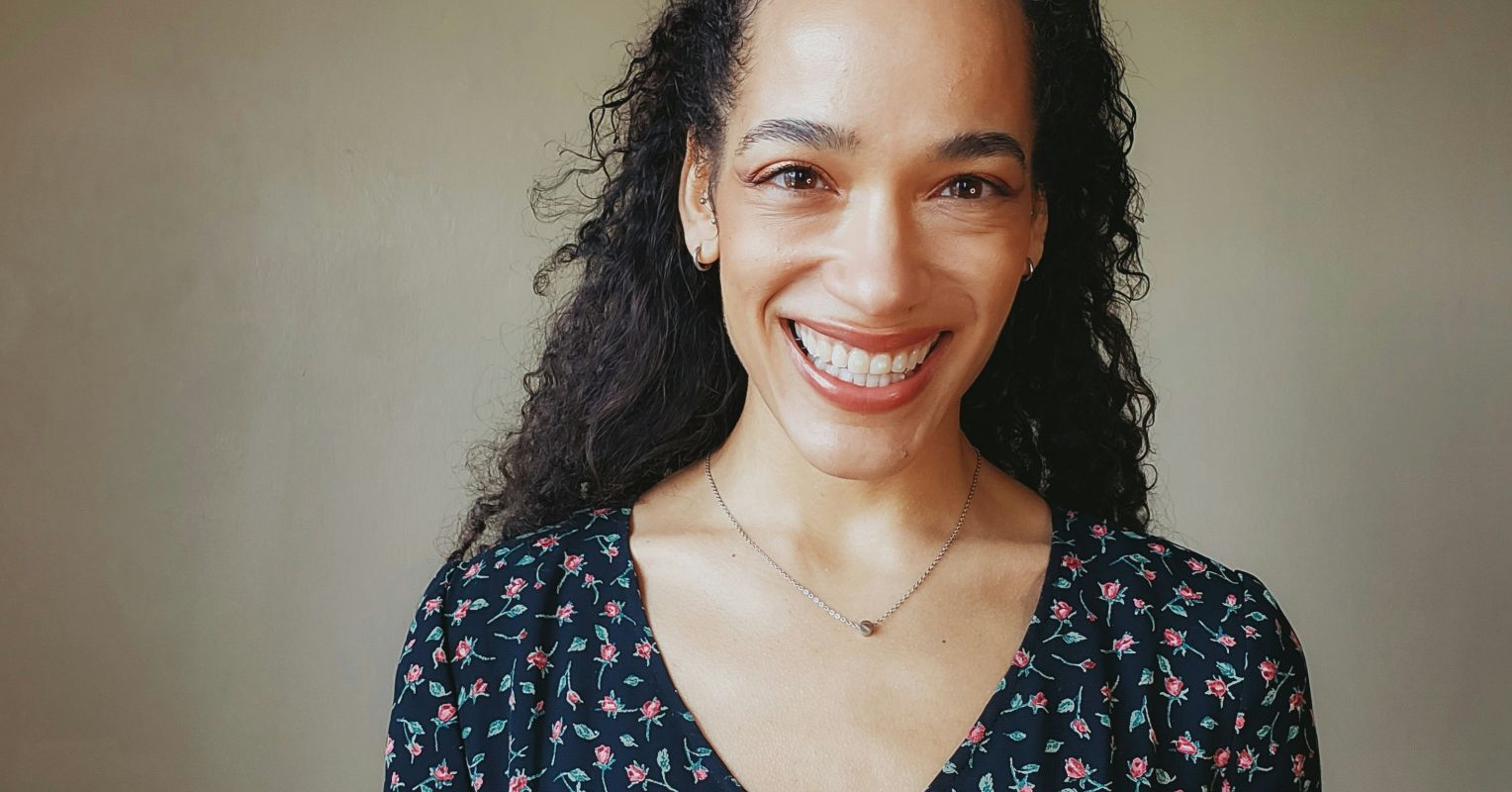Valentine’s Day is usually considered a day for celebrating romantic love. Couples go on dinner dates, shower each other with affection, and give romantic cards and gifts.
But Valentine’s Day is clearly not just for lovers. School-aged kids often give everyone in their class valentines with notes of kindness, helping to create a loving classroom community. Parents give valentines to their children to express familial love—and vice versa. At its heart (pun intended), Valentine’s Day can celebrate love in all of its forms.
That’s a good thing. Because love is worth promoting no matter the object. As researcher Barbara Fredrickson argues, love is the “supreme emotion,” something we all need to survive and thrive. It frequently occurs outside of our romantic relationships, in those moment-to-moment experiences of warm, mutual caring that Fredrickson calls shared positivity, which we can feel with any person—even strangers.
X

Love has the power to augment our sense of common humanity and help change the world for the better, too. As Martin Luther King Jr. wrote, “Love is the greatest force in the universe. It is the heartbeat of the moral cosmos.” Expanding feelings of love as widely as we can, even beyond people in our personal lives, is a good thing for us all.
How can we show love to others on this day? Let me count the ways…
1. Experiment with being kind to everyone
When we do something nice for someone else, without expectation of reward or recognition, it spreads love outward, making people feel noticed and cared for.
And there’s no need to worry about doing something nice for someone you don’t know well or even a stranger—research suggests that people appreciate acts of kindness more than we imagine they will. That can be as simple as paying for the person behind you in the drive-thru line or complimenting a stranger on their outfit. (I’ve had this happen to me, and it was such a high!)
Being kind to others increases our sense of connection to them and draws people to us, creating mutual warm feelings that are at the heart of love. And our kindness will encourage people to offer kindness to others themselves, helping love proliferate beyond this one interaction.
Some ideas for how to practice kindness include bringing treats to your colleagues at work, calling an elderly neighbor who is isolated, offering to plow your neighbor’s snow-covered driveway, or picking up trash you see on the side of the road. Or you can simply be alert to opportunities to smile and say hello to the people you encounter going about your everyday business—your barista, teacher, doctor, mail carrier. No matter the kindness, people will likely appreciate it—and may pass it on.
2. Be generous
While practicing everyday kindness is a lovely way to spread love, you may also have special skills or financial resources that could help people in need whom you don’t know personally. Right now, there are people here and around the world suffering from devastating losses caused by destructive fires, floods, war, and more. Giving money or time to relief efforts can be a beautiful way to build a more loving community and world.
Even if that’s not possible, you can still be generous in other ways, perhaps volunteering in your local community. Maybe you like to knit and could see if your local neonatal clinic needs baby hats or a shelter needs scarves. If you’re a musician, maybe you could offer to perform at a nursing home. You can bake and cook for your local soup kitchen, or offer to box up groceries at a food pantry. Volunteering this way benefits your community by spreading goodwill, while also providing many Mental health benefits for yourself.
3. Express gratitude
We often take for granted the many people doing good in the world. By taking the time to appreciate the givers and helpers, you’ll nurture warm feelings all around.
Gratitude can be for anyone we know—our friends, families, colleagues, or neighbors—as well as for people we may never meet, like the farmers who grow our food or first responders who keep our community safe. When we acknowledge their gifts in our minds and hearts—or, better yet, make our thanks explicit by writing a gratitude letter or by telling them directly—we build loving feelings.
Research finds that giving thanks increases our sense of connectedness with others and helps us feel less lonely. Being specific about what you’re grateful for and how it’s affected you is even more powerful. For example, writing a gratitude letter to a favorite teacher who encouraged you or a coach who inspired you to persevere is a particularly wonderful way to express love. (Bonus points for reading your letter to them in person.)
Thanking, in all its forms, not only feels good, it encourages others to be kinder and more altruistic. Even witnessing gratitude can encourage others to pay it forward. And, if you happen to be in a romantic partnership, expressing gratitude can give your relationship a boost. So, look for opportunities to give thanks.
4. Be curious and practice deep listening
As the StoryCorp slogan proclaims: “Listening is an act of love.”
In our busy lives, it’s a gift of love to pause our inner chatter, become curious about another person, and ask questions that help them tell their story—rather than steering the conversation toward yourself or rehearsing what you want to say while they’re talking. Active listening can help someone who feels invisible or misunderstood to feel cared for and safe. Try this the next time your family member starts in on a long story or your friend calls you to vent.
While it’s easier to listen to people we know well and generally agree with, listening can also help ease tensions with people we don’t, too—e.g., someone from a different cultural group or political party. By learning how to be curious rather than judgmental, we can see people as individuals rather than stereotypes and increase our warm feelings for them. We may even find commonalities and points of connection.
How to do this? Greater Good has created a whole playbook that can help you bridge differences, including several strategies for being better listeners. For example, asking questions to elicit someone’s individuality—like asking about their favorite food, morning routine, or favorite childhood memory—can help you see them more holistically, feel warmer toward them, and reduce hostility. Similarly, listening to people with attention, asking clarifying questions, acknowledging points of agreement, or admitting when you aren’t sure about something can help anyone turn difficult conversations in a more positive direction.
While this isn’t as easy as chatting with your best friend, researchers have found people enjoy these difficult conversations more than they anticipate they will. So, why not expand love by listening better?
5. Cultivate feelings of awe with friends and neighbors
When we connect with something bigger or greater than ourselves, we feel wonder and a sense of being small in the face of vastness—or what researchers call awe.
Because feeling awe inspires us to be less self-focused, we become more attentive to the needs of others and willing to help them. Experiencing awe can make us feel more empathic, generous, and connected to those around us, providing the building blocks for a more loving, compassionate community.
For that reason, cultivating awe while in the company of others can be a great way to spread love. There are many ways to access awe while with friends, family members, neighbors, or even strangers, including taking an awe walk in nature, watching movies or reading stories about the inspiring work of moral exemplars, visiting art museums or music concerts, and more. Tuning into the complex beauty of the world around us can help us nurture our sense of common humanity and cement our concern for the well-being of all.
Of course, these are just some of many ways to show others you care. But, hopefully, they can inspire you to think a little differently about Valentine’s Day this year. Instead of focusing only on romance, we might try to spread messages of love in all directions. If we all try to be more loving on this special holiday—or, for that matter, any day of the year—we could help create a more loving, caring community and world for all.













